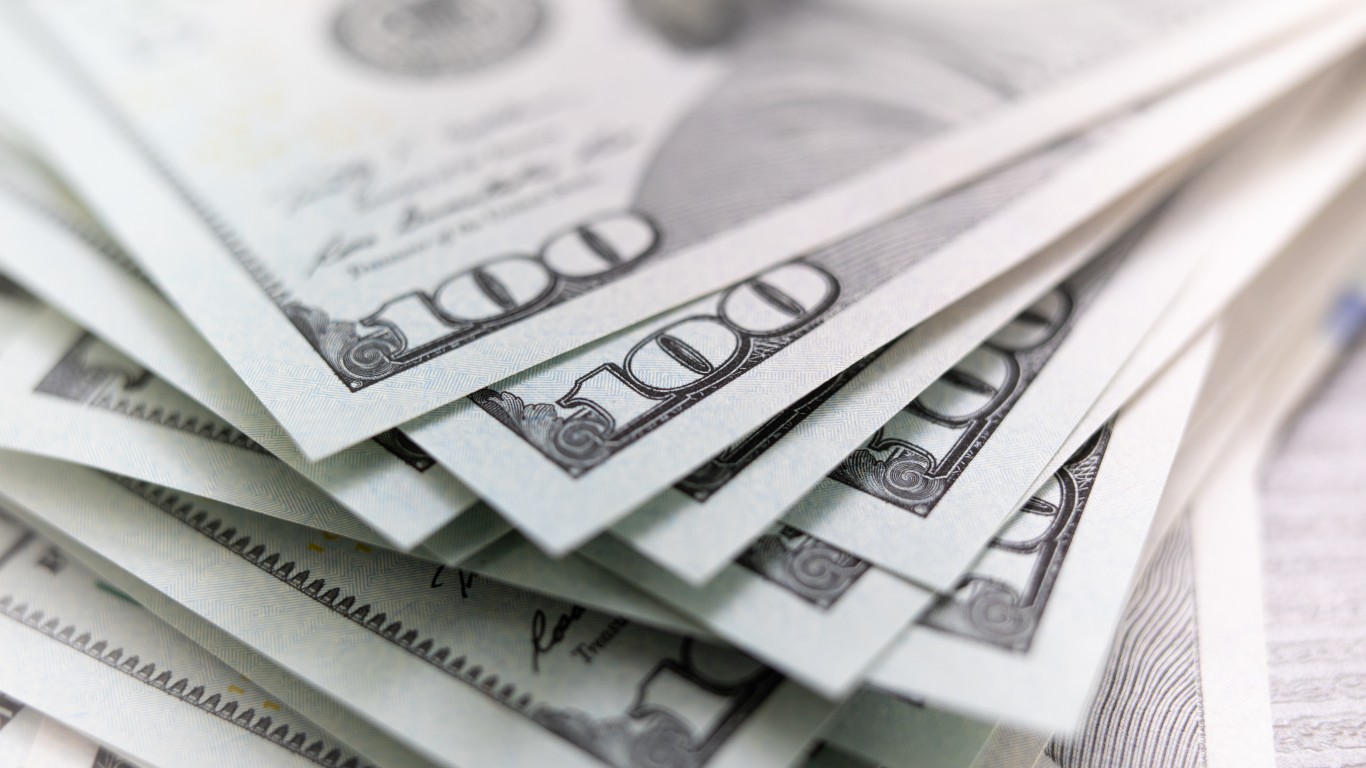
Although dividend stock investing is one of the best ways investors can significantly better their portfolio returns over time, dividend growth stocks are even better.
Numerous studies have shown dividend stocks have outperformed non-paying stocks by a wide margin for nearly 100 years, but stocks that raise their payout do even better. Since the 1920s, dividend growth stocks on the S&P 500 have never had a losing decade.
More recently, data from by Ned Davis Research and Hartford Funds shows that over the 50-year period between 1973 and 2023, dividend growth stocks generated annual average returns of 10.2% compared to 9.2% by stocks that didn’t raise their payout. And stocks that didn’t pay a dividend at all returned only 4.3%.
It’s not always a straight run higher, though, and the three dividend growth stocks below are currently at or near their 52-week lows. While over the long haul they may all do quite well, only two of them are buys today.
24/7 Wall St. Insights:
- Dividend stocks are one of the best investments for growing long-term wealth, outperforming non-payers by 2-to-1 over the last 50 years.
- Yet investors still need to take care in choosing dividend stocks to buy because some could be in danger of years of underperformance.
- Sit back and let dividends do the heavy lifting for a simple, steady path to serious wealth creation over time. Grab a free copy of “2 Legendary High-Yield Dividend Stocks“ now.
Dividend giant to buy No. 1: United Parcel Service (UPS)

Parcel delivery leader United Parcel Service (NYSE:UPS) was recently trading at a 52-week low, a level it had not seen since the pandemic. Yet it remains the industry leader in ground delivery and express shipping, moving more packages than rivals FedEx (NYSE:FDX) and DHL (OTC:DHLGY).
Although UPS faces some near-term pressure as Amazon (NASDAQ:AMZN) brings more of its delivery operations in-house, the growth of e-commerce generally still provides an overwhelming tailwind to the carrier. Further, it just took over the U.S. Postal Service contract from FedEx and management expects it to be accretive to profits and margins in the first year.
Its business is still normalizing from the boom effect of the pandemic, but UPS expects volumes, revenue, and profits to return to growth. It will, however, face higher labor costs from its recently negotiated union contracts, which may impact margin expansion. However, its acquisition this past July of Mexican express carrier Estafeta bolsters its international presence.
The breadth and scale of its operation make UPS the dominant player and its depressed stock a buy. UPS has paid a dividend since 1999 and has raised it for 15 straight years. With the payout yielding 4.8% annually, UPS stock is an attractive purchase for capital appreciation and income.
Hershey (HSY)

U.S. chocolate leader Hershey (NYSE:HSY) is the second dividend giant to buy at 52-week lows. It has focused more heavily on its domestic business over the last few years as its international efforts have dwindled in importance. Today, international sales account for 1% of total sales.
Yet both divisions have experienced sales softness as consumer tastes change in a high-inflation environment at the same time its input costs for cocoa and sugar have jumped. Hershey, though, continues to invest for the long term. It is increasing its capacity and improving its supply chain, with management willing to make greater capital expenditures now to support its business.
Hershey owns over 35% of the U.S. retail chocolate aisle, according to Statista, ahead of second-place Mars at less than 30%, though the latter is bigger in overall confectionery sales. It should emerge from this low period in fine shape, particularly as its salty snacks business gains traction.
The chocolatier is a fantastic dividend growth stock with a payout that yields an enticing 3% annually. Hershey has raised its dividend at a better than 10% annual growth rate for the past decade and it is at a near-13% rate over the past five years. The dividend is well supported by free cash flow that has grown at 6% and 4% over the respective periods, giving it a FCF payout ratio of around 50%.
Dividend giant to avoid: Franklin Resources (BEN)

As a Franklin Resources (NYSE:BEN) shareholder, it pains me to say you should avoid buying its stock. However, the owner of the Franklin Templeton family of funds suffered from poor performance relative to its peers and it will see greater investor outflows from its Western Asset Management unit that is now under investigation by federal authorities. It is shuttering a $2 billion fixed income fund while the investment executive at the heart of the scandal left the firm with charges likely to be filed.
It is definitely a poor reflection on the asset management company that has historically been a top-flight operation with a history of generating excess returns for investors. Yet until the dust settles and Franklin can get back on track, this Dividend Aristocrat should be avoided, even with its stock down 30% in 2024.
Franklin Resources has a 44-year history of raising its payout, and though its dividend yields 6% annually, the increases have been just 2% annually for the last 10 years. With its payout ratio approaching 70%, this makes it a riskier play and investors should just stay on the sidelines with BEN stock.
Travel Cards Are Getting Too Good To Ignore (sponsored)
Credit card companies are pulling out all the stops, with the issuers are offering insane travel rewards and perks.
We’re talking huge sign-up bonuses, points on every purchase, and benefits like lounge access, travel credits, and free hotel nights. For travelers, these rewards can add up to thousands of dollars in flights, upgrades, and luxury experiences every year.
It’s like getting paid to travel — and it’s available to qualified borrowers who know where to look.
We’ve rounded up some of the best travel credit cards on the market. Click here to see the list. Don’t miss these offers — they won’t be this good forever.
Thank you for reading! Have some feedback for us?
Contact the 24/7 Wall St. editorial team.





